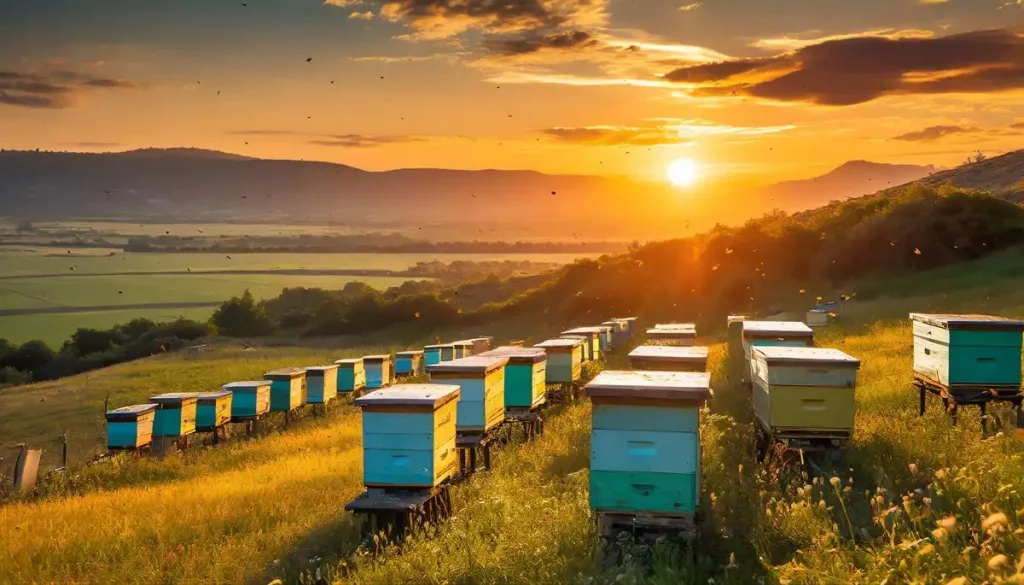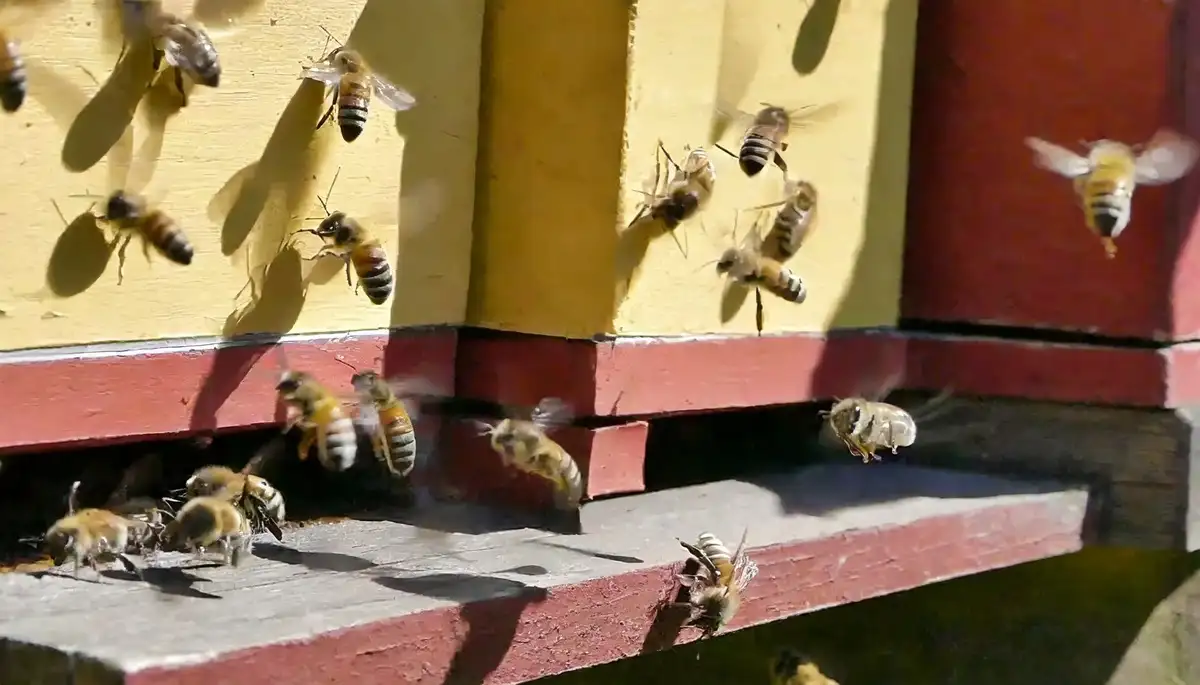Table of Contents
Key Takeaways
- Obtaining permits is a critical aspect of beekeeping regulation, necessary for legal operation and ensuring safety for bees, beekeepers, and the public.
- The permit application process varies depending on location and requirements, and typically involves providing documentation such as a site plan, beekeeping management plan, and proof of liability insurance.
- Permit fees vary depending on location and operation size, and it’s essential to understand and comply with specific permit requirements to avoid fines or legal action.
- Staying up-to-date on regulations is vital as permit requirements may change over time.
- Zoning regulations are crucial for beekeepers to understand and comply with, dictating how land can be used for beekeeping operations.
- Registration is another essential aspect of beekeeping regulation, providing benefits such as access to education and resources, networking opportunities, and monitoring for safety.
- Compliance with beekeeping regulations is critical for the industry, ensuring safety for bees and the public, and promoting a positive image.
- Staying up-to-date on the latest regulations and best practices is essential to avoid penalties, ensure safety, and promote the growth and success of the beekeeping industry.
Importance of Beekeeping Permits
Obtaining permits is a crucial aspect of beekeeping regulation that deserves further explanation. Permits are issued by local or state authorities and are necessary for the legal operation of a beekeeping operation. Depending on the location and size of your beekeeping operation, you may need to obtain one or more permits.
The importance of obtaining permits cannot be overstated. Permits help to ensure that your operation is following best practices for beekeeping and is operating in a manner that is safe for bees, beekeepers, and the general public. Permits can also help to protect the surrounding environment by ensuring that your beekeeping operation is not causing harm to local flora or fauna.
For instance, beekeeping permits have been instrumental in several regions by preventing the introduction of invasive species, thus preserving local biodiversity and agricultural productivity. These examples underscore the tangible benefits of obtaining the necessary permits.
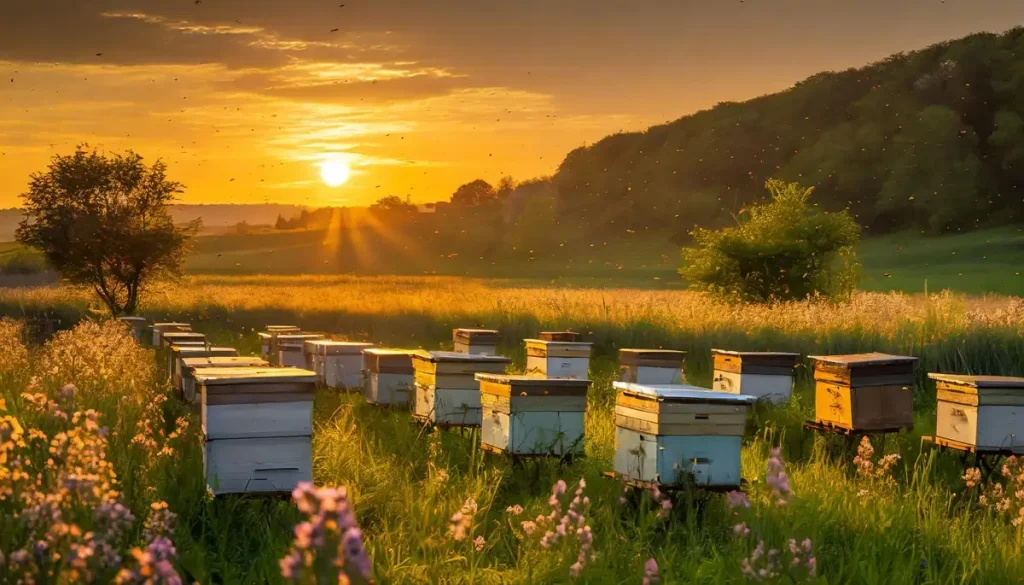
Obtaining Beekeeping Permits
The process of obtaining permits can vary depending on your location and the specific requirements of the issuing authority. Typically, the permit application process involves providing documentation to the issuing authority. This documentation may include a site plan, which outlines the location and layout of your beekeeping operation, a beekeeping management plan, which details how you will manage your bees and ensure their health and wellbeing, and proof of liability insurance, which protects you and others in the event of any accidents or injuries.
A comprehensive site plan should detail not only the physical layout of your hives but also any relevant features of the surrounding area that could affect your bees. Your beekeeping management plan should outline your strategies for disease control, hive density, and queen breeding practices, ensuring a healthy and sustainable operation.
Permit Application Process
Once you have submitted your permit application, you will need to pay a fee to obtain the permit. This fee may vary depending on your location and the size of your operation. It is crucial to make sure that you understand the specific permit requirements in your area and follow them carefully to avoid fines or legal action.
To streamline your permit application process, consider the following steps:
- Gather all necessary documentation, including your site and management plans.
- Review your local authority’s beekeeping regulations.
- Submit your application along with any required fees.
- Await approval, staying in contact with the issuing authority for any updates.
Fees and Permit Requirements
It is also important to note that permit requirements may change over time, so it is essential to stay up to date on the latest regulations and requirements in your area. Failure to comply with permit requirements can result in fines or legal action, so it is crucial to take the time to understand and follow all relevant regulations and requirements.
While fees can vary widely, beekeepers might typically expect to pay anywhere from $25 to $100 for a permit, depending on the scope and scale of their operations. Understanding these potential costs upfront can help you budget more effectively for your beekeeping venture.
Staying Up to Date on Regulations
Obtaining permits is a critical aspect of beekeeping regulation that helps to ensure that your operation is operating in a manner that is safe for bees, beekeepers, and the general public. By understanding and complying with permit requirements, beekeepers can help to promote a positive image for the beekeeping industry and ensure the long-term success of their operations.
To stay informed about the latest beekeeping regulations, subscribe to newsletters from your local agriculture department, join beekeeping associations, and participate in community forums. These resources can be invaluable for receiving timely updates and advice.
Zoning: Understanding Beekeeping Regulations
Zoning is a crucial aspect of beekeeping regulation that beekeepers need to be aware of to operate legally and safely.
- Carter, Anthony (Author)
- English (Publication Language)
- 194 Pages - 02/28/2024 (Publication Date) - Independently published (Publisher)
What are Zoning Regulations?
Zoning regulations are laws that dictate how land can be used in a particular area, including restrictions on the size, location, and types of activities that can be conducted in specific areas.
Zoning Regulations and Beekeeping
For beekeepers, zoning regulations can include rules about the location and size of beekeeping operations. Some areas may have restrictions on the number of hives that can be kept on a property or require a minimum distance between hives and neighboring properties or public spaces. It is important to understand the zoning regulations in your area and how they may impact your beekeeping operation.
Applying for Permits
In some cases, you may need to apply for a permit or special exception to comply with zoning laws. This may involve submitting documentation or plans to the local zoning board, attending hearings or meetings, and paying a fee. It is essential to understand the specific zoning requirements in your area and follow them carefully to avoid fines or legal action.
Penalties for Non-Compliance
Failure to comply with zoning laws can result in penalties, including fines, injunctions, or even the loss of your beekeeping operation. Compliance with zoning regulations is critical for the safety of bees, beekeepers, and the general public, and it helps to promote a positive image for the beekeeping industry.
Avoid common pitfalls by double-checking your permit application for completeness, maintaining open communication with local authorities, and regularly reviewing zoning laws for any changes that might affect your operation.
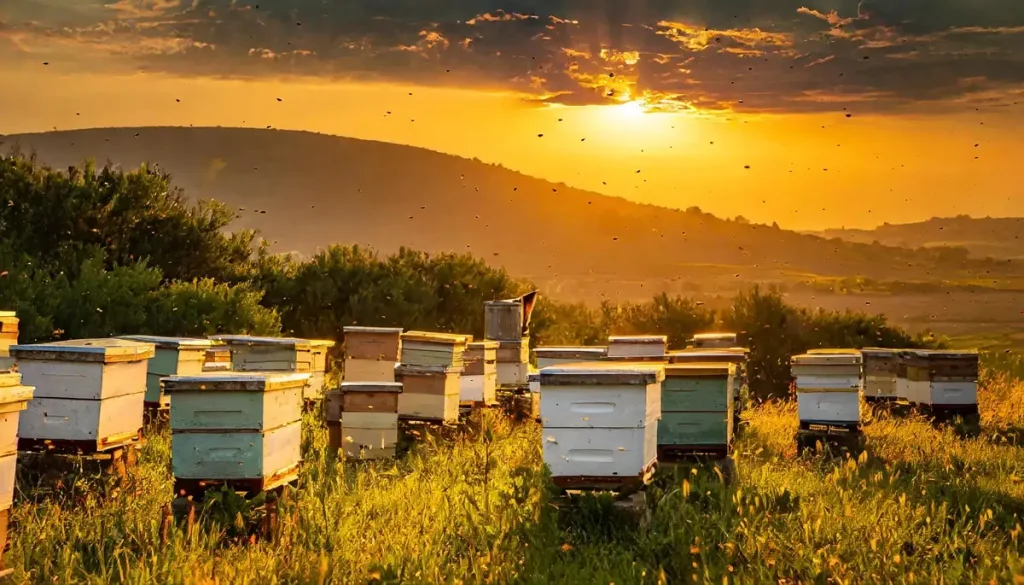
Beekeepers Need to be Aware of Registration
Registration is an essential aspect of beekeeping regulation that beekeepers need to be aware of to operate legally and safely. Registration requirements vary by location but generally involve providing information about your beekeeping operation to local or state authorities. This information can include the number of hives, the location of the hives, and the type of bees you keep.
Registered beekeepers often report improved access to resources and support networks, with one noting, ‘Registration opened doors to workshops and community events that have been invaluable for my growth as a beekeeper.’
Benefits of Registration
Registering your beekeeping operation can provide many benefits, including access to beekeeping education and resources, networking opportunities with other beekeepers, and the ability to receive alerts and updates about beekeeping events and emergencies. Some areas may offer free or low-cost beekeeping courses to registered beekeepers or provide educational materials and resources to help beekeepers learn more about beekeeping best practices.
Monitoring and Safety
In addition to these benefits, registration can also help local authorities track the number and location of beekeeping operations in their area. This information can be used to monitor the health of local bee populations, track the spread of diseases or pests, and identify potential safety risks.
Consequences of Non-Registration
It is important to note that failure to register your beekeeping operation can result in penalties, including fines or legal action. Registration is required in many areas to operate legally, and compliance with registration requirements is critical for the safety of bees, beekeepers, and the general public.
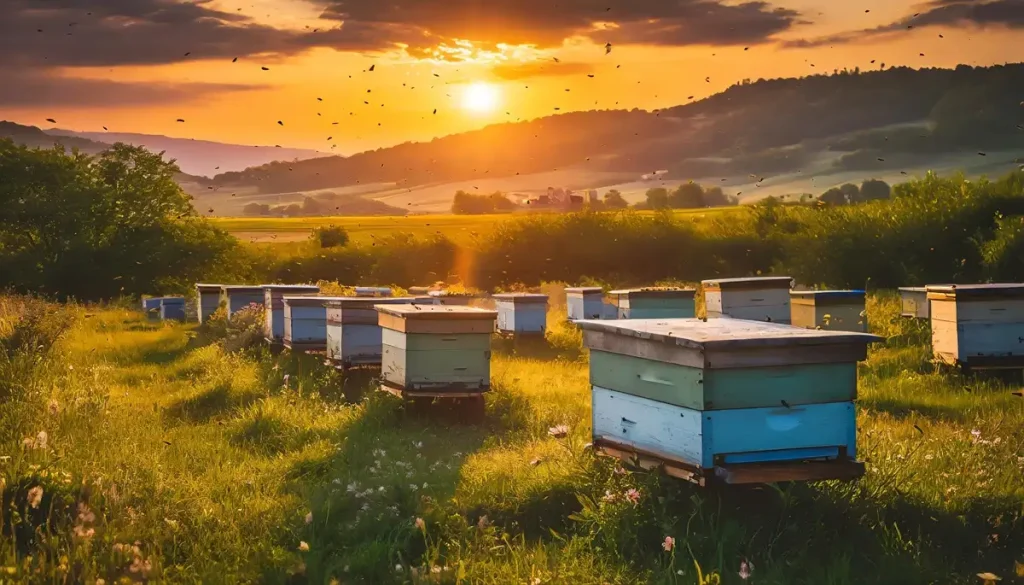
The Importance of Compliance
Compliance with beekeeping regulations is critical for the beekeeping industry as a whole. Non-compliance can result in fines, legal action, or even the loss of your beekeeping operation. Compliance with regulations is essential for ensuring that your operation is safe for both bees and people, and it helps to promote a positive image for the beekeeping industry.
Protecting Bees and the Public
As beekeepers, we have a responsibility to protect the health and safety of bees and the public. Compliance with beekeeping regulations is an essential part of fulfilling this responsibility. Compliance helps to ensure that your beekeeping operation is operating in a manner that is safe and healthy for bees, while also promoting the health and well-being of the community around you.
Adopting best practices such as maintaining appropriate distances between hives and property lines, regular health inspections of your bees, and engaging in responsible forage management can ensure your operations are both safe and sustainable.
Staying Up to Date on Regulations
It is essential to stay up to date on the latest regulations and best practices and to comply with all relevant laws and regulations. Beekeeping is a constantly evolving field, and new regulations and best practices are constantly being developed. Staying up to date on the latest developments can help you to avoid penalties and fines, while also promoting the growth and success of the beekeeping industry.
For the most current regulations, visit your local agricultural department’s website and consider joining organizations such as the American Beekeeping Federation for updates and guidance.
Promoting a Positive Image
Compliance with beekeeping regulations can also help to promote a positive image for the industry. Beekeeping is an essential part of many local ecosystems and provides a valuable service to the community. Complying with regulations helps to ensure that beekeeping operations are operating in a manner that is safe and sustainable for the environment, and it helps to promote a positive image for the industry.
Engage with your local community by hosting informational sessions on beekeeping, participating in agricultural fairs, and supporting local environmental initiatives. These activities not only foster community relations but also enhance the public image of beekeeping.
Beekeeping Laws and Regulations – Conclusion
In conclusion, the success of beekeeping hinges on adherence to laws and regulations designed to protect bees, beekeepers, and the public. By obtaining necessary permits, complying with zoning laws, and registering your operation, you contribute to a sustainable and positively viewed beekeeping industry. Remember, these regulations are not just obligations but opportunities to ensure the health and longevity of your beekeeping endeavors.
FAQs
Q: What are the primary purposes of beekeeping laws and regulations? A: The primary purposes of beekeeping laws and regulations are to ensure the safety and welfare of bees, protect public health, and promote responsible beekeeping practices to prevent the spread of diseases and pests, as well as to minimize potential conflicts between beekeepers and their neighbors.
Q: Do I need a permit or registration to keep bees in my area? A: Permit and registration requirements vary depending on your location. It is essential to consult your local government, city, or town ordinances, as well as state and national laws, to determine if a permit or registration is needed for beekeeping in your area.
Q: Are there restrictions on the number of hives I can keep? A: Restrictions on the number of hives may depend on the size of your property, zoning regulations, and local ordinances. It’s important to research the specific laws in your area to ensure compliance.
Q: Can I keep bees in a residential area or an urban setting? A: Keeping bees in residential areas or urban settings is subject to local zoning regulations and ordinances. Some cities encourage urban beekeeping, while others may have restrictions or prohibitions in place. Always consult local laws and guidelines before starting beekeeping in a residential or urban area.
Q: What are the recommended distances between hives and property lines or dwellings? A: Recommended distances between hives and property lines or dwellings vary depending on local laws and guidelines. Some jurisdictions may require a specific distance, while others may not. It’s crucial to research your area’s regulations to ensure your hives are placed appropriately.
Q: Are there any specific requirements for the construction and maintenance of hives? A: Requirements for hive construction and maintenance vary by jurisdiction, but generally, hives should be well-built, weather-resistant, and provide adequate ventilation and space for bees. Proper maintenance, such as regular inspections and treatments for diseases and pests, is essential for bee health and to comply with local regulations.
Q: What should I do if my bees swarm or become a nuisance to my neighbors? A: If your bees swarm or become a nuisance, it’s important to address the issue promptly. Contact a local beekeeper, beekeeping association, or your local government for assistance in managing the situation. Maintaining open communication with your neighbors and addressing their concerns can help prevent conflicts and maintain positive relationships.
Q: Are there specific regulations regarding the transportation of bees and beekeeping equipment? A: Regulations regarding the transportation of bees and beekeeping equipment can vary depending on the area and the potential for spreading diseases or pests. It’s essential to consult local, state, and national laws to ensure you are in compliance when moving bees or equipment.
Q: What are the legal requirements for selling honey and other bee products? A: Legal requirements for selling honey and other bee products depend on your location and the scale of your operation. Compliance with food safety regulations, proper labeling, and any necessary permits or licenses should be considered. Consult local and state laws, as well as guidelines from the relevant food safety authorities, to ensure you meet all requirements.
Q: Where can I find more information about beekeeping laws and regulations in my area? A: To find more information about beekeeping laws and regulations in your area, consult your local government, city, or town ordinances, as well as state and national laws. Additionally, local beekeeping associations and extension services can provide valuable resources and guidance for both new and experienced beekeepers.
Q: Are there restrictions on the use of pesticides or chemicals in beekeeping? A: Yes, there may be restrictions on the use of pesticides or chemicals in beekeeping to protect the health of bees and the quality of honey and other bee products. It is crucial to follow the guidelines and regulations set by your local, state, and national authorities. Always use approved treatments and follow the manufacturer’s instructions for proper application and dosage.
Q: How do I report a suspected case of bee disease or pest infestation? A: If you suspect a case of bee disease or pest infestation in your hives, it’s essential to act quickly to prevent the spread of the issue. Contact your local agricultural extension office, department of agriculture, or a local beekeeping association for guidance on the proper reporting procedures and recommended actions to take.
Q: Are there specific regulations for importing bees and beekeeping equipment? A: Regulations for importing bees and beekeeping equipment are in place to prevent the spread of diseases and pests across regions and countries. These regulations vary depending on the origin and destination of the bees or equipment. Consult with the appropriate local, state, or national authorities for specific import requirements, permits, and quarantine procedures.
Q: How can I stay up-to-date on the latest changes in beekeeping laws and regulations? A: Staying informed about the latest changes in beekeeping laws and regulations is essential for responsible beekeeping. You can stay up-to-date by regularly checking local, state, and national government websites for updates, joining local beekeeping associations, and attending beekeeping workshops or conferences. Networking with other beekeepers and participating in online forums can also be helpful for staying informed about regulatory changes.
Q: Are there any restrictions on beekeeping near schools or public spaces? A: Restrictions on beekeeping near schools or public spaces may depend on local zoning regulations and ordinances. It’s important to research the specific laws in your area to ensure compliance. In some cases, beekeeping may be permitted with proper precautions and safeguards in place to protect the public, such as the use of barriers or adequate distance between hives and public areas.
Looking to up your beekeeping game? Check out our latest product recommendations so you can take things to the next level!
Introducing The Top 12 Best Beekeeping Veils For 2024
Introducing The Top 20 Best Beekeeping Gloves For 2024
Introducing The Absolute Best Beekeeping Suits For 2024
The 15 Top Beekeeping Books for 2024
The Top 11 Honey Extractors for 2024
The Top 12 Mason Bee Houses for 2024
Beekeeping Disclaimer:
Beekeeping, like any agricultural activity, involves inherent risks. It is important to understand these risks and take appropriate measures to mitigate them.
Potential risks associated with beekeeping include:
- Bee stings: Honey bees are generally not aggressive but can become defensive if they feel threatened or their hive is disturbed. Bee stings can cause allergic reactions or even anaphylaxis in some individuals, which can be life-threatening. It is important to wear protective clothing and follow best practices when handling bees to minimize the risk of stings.
- Diseases and pests: Bees can be vulnerable to various diseases and pests, including mites, viruses, and bacterial infections. These can have significant impacts on bee colonies, leading to reduced honey production or even colony collapse. It is important to monitor hives regularly and take appropriate measures to prevent and treat diseases and pests.
- Weather conditions: Extreme weather conditions, such as drought or cold temperatures, can affect the health and productivity of bee colonies. It is important to ensure that hives are appropriately sheltered and provided with adequate food and water.
- Environmental hazards: Bees can be affected by environmental hazards such as pesticide exposure, pollution, and habitat loss. It is important to be aware of these hazards and take appropriate measures to protect bee colonies and promote healthy environments for bees.
- Legal requirements: Beekeeping may be subject to local, state, or national regulations, such as registration or inspection requirements. It is important to be aware of these requirements and comply with them.
While beekeeping can be a rewarding and enjoyable activity, it is important to be aware of the potential risks and take appropriate measures to mitigate them. By following best practices and staying informed about the latest developments in beekeeping, beekeepers can help ensure the health and productivity of their hives and contribute to the well-being of bee populations worldwide.
Last update on 2024-05-09 / Affiliate links / Images from Amazon Product Advertising API

